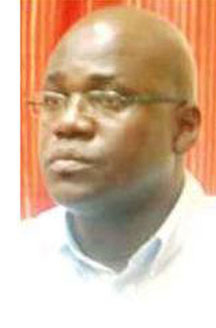The technical advisor within the Ministry of Education has been appointed Chief Education Officer, five years after the post was made vacant and became controversial after Genevieve Whyte-Nedd acted in the position until her retirement but was never appointed.
Olato Sam was appointed last month, according to the Ministry of Education with the appointment becoming effective yesterday.
According to a release from the ministry, Melcita Bovell who was acting as the Assistant Chief Education Officer (Secondary) has now been appointed to that position and Donna Chapman, the acting Deputy Chief Education Officer (Administration) has been appointed to that position.
The release said Sam had been serving as the technical advisor to Minister of Education since 2007.
Whyte-Nedd was acting in the position of chief education officer since September 2005. Prior to this, she had also acted in the same position for the period October 2001 to October 2002. The Education Ministry advertised for the position in March 2006 and again in October 2006, and on each occasion she submitted an application for the said position, but was never appointed. The Public Service Commis-sion (PSC) which is empowered under article 120 of the Constitution to make the appointment had said that Whyte-Nedd’s lack of appointment was because the commission was in the midst of a restructuring exercise.
When the PSC was contacted yesterday for a comment on the new appointment, this newspaper was told that Commissioner Ganga Persaud was unavailable for the day.
However the Guyana Public Service Union said the new appointment only confirms its previous position that Whyte-Nedd was being “waited out” until her retirement and the restructuring was merely an excuse to deny her the position. In November last, Whyte-Nedd retired from public service.

Dennis English, Senior Industrial Relations Officer with the GPSU yesterday said that the union supports the filling of the vacancy since it is a “critical, important and pivotal” position but maintained that “the appointment now cements the union’s argument that it was an inordinate delay in the appointment of Ms Whyte-Nedd”.
The GPSU has been protesting the non-appointment of Whyte-Nedd ever since her appointment was bypassed. The union had said that Whyte-Nedd’s non-appointment was a clear violation of an agreement and principle between the union and the PSC where there is an automatic appointment to vacant positions which were occupied for more than three years by officers who were acting in the post and are fully qualified.
Meanwhile, in July last year, Whyte-Nedd filed a motion in the High Court calling on the PSC to show cause why the decision not to appoint a chief education officer should not be set aside. The motion was granted by Justice Franklin Holder.
She alleged in court documents filed that the current PSC which was established in 2007, failed to fill the vacant post of chief education officer, but it considered and filled several other vacancies including that of Assistant Chief Education Officer (Primary).
The PSC has since requested leave to file an affidavit in answer. The matter is to be called again in court on January 17.
Meanwhile, the ministry release said Sam was also Chairman of the Board of Directors of the Cyril Potter College of Education and was instrumental in introducing a number of education initiatives including designing, implementing and coordinating the Teacher Education Improvement Project being funded by the World Bank.
A graduate with a Bachelor’s Degree in a special major ‘Sociology, Anthropology & Education’” from the Swarthmore College in Pennsylvania, Sam also holds Pennsylvania Teachers Certificate in the area of Social Studies.
After teaching at Walton High School as a teacher of Social Studies and English Literature he then became the Coordinator of the Alternative Education Program for the education district at MS 144 and continued his studies at New York University, earning a Masters Degree in International Education with a concentration in Latin America and the Caribbean.
He returned to Guyana as the Director of the New Millennium Institute and introduced the phonetic based literacy instructional programme through the Reading for All Learners Program (RALP), currently being used in the school system nationwide.
Then, he took up a position in the School of Education and Humanities in the Departments of Foundations and Education Management and Curriculum and Instruction as a lecturer.
In June 2006 he became the Head of the Department of Curriculum and Instruc-tion and served in that capacity for one year.








